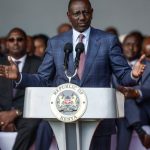The National Economic Council, on Thursday, approved plans to overhaul 17,000 and 774 primary and secondary healthcare centres, respectively, nationwide.
It said the move was in response to identified funding gaps and deteriorating healthcare metrics, as revealed by a presentation by the Coordinating Minister of Health and Social Welfare, Prof. Ali Pate, to the council.
Bauchi State Governor, Bala Mohammed, detailed the government’s strategy to State House Correspondents following the 137th National Economic Council meeting chaired by Vice President Kashim Shettima at the Aso Rock Villa, Abuja.
Conveying the insights from Pate’s presentation, which highlighted the critical condition of the health sector, Governor Mohammed said, “The presentation…dissected in terms of very robust sector scan on health, from the tertiary to the primary level, looking at all the gaps, the problems and challenges of funding.”
He lamented the stark statistics showcasing a decline in health indices, including infant mortality rates, stating that the Tinubu-led administration aims to establish a synergy among stakeholders for deep, lasting reforms.
Therefore, he announced that the scope of the renewal of the programme intends to “service 17,000 primary health centers to be put on a threshold of viability, 774 secondary facilities, that is hospitals, in addition to some tertiary institutions.”
This comprehensive plan is designed to “make sure medicare is brought close to the majority of Nigerians,” Mohammed added.
On the source of funding, Governor Mohammed revealed that “suggestions were made…that we could use some taxes from communication, from airlines, as well as our taxes from the state government” to bridge the financial gaps plaguing the healthcare system.
Highlighting the critical shortage of healthcare professionals, he also pointed out the “huge problem of human capital and attrition of experts,” stressing the necessity of developing strategies to retain local talent.
The Governor said, “Certainly, we have a huge problem of human capital and attrition of experts and the need to develop a strategy to retain our experts to care for our health sector.
“So the presentation is a robust compact that looked at all the problems and challenges of the health sector, from financing, the human capital, from the supervisory point of view, and even on the leadership level, from the presidency to the local governments and the need for us as governors, local government even media, to put interest in the health sector.”
According to Governor Mohammed, the council’s resolution includes an upcoming compact agreement with the World Health Organization on December 15, 2023, where “All the governors will come and sign a compact agreement in terms of service compact.”
This, he argued, underscores the collective commitment to budgeting for and prioritising healthcare.
Mohammed said while a democratic system like Nigeria’s cannot forcefully stop the outflux of healthcare professionals to other countries in search of greener pastures, plans are underway to manage the brain drain.
However, he urged Nigerian healthcare professionals to be a bit patriotic, citing the health minister who, he said, forewent a more lucrative position at the Global Alliance for Vaccines and Innovation to serve his nation.
“I asked that question too in Cabinet and the very ingenious answer the minister gave me is that he is working very hard to make sure he establishes a compact with these European countries.
“Under Democracy, you cannot stop anybody from going. As a state. I have built over 1000 primary health centers, but I don’t have the doctors; I only have 100, as you said. But we used to have 3000, they have run away.
“We are working very hard with this compact to develop a robust conditional service or scheme of service that will make them retained. But certainly, we’re urging Nigerians to know that your home is your home. And you must sit down here and work.
“Dr. Pate left a very big job where he was earning two point something billion with Gavi to come on work with 500,000 a month. I think our doctors need to understand this and this is what we’re doing through persuasion.”
The former FCT Minister also noted that plans are underway to free up regulatory hurdles to train more healthcare professionals to cover the gap.
He said, “We are trying to make sure we produce more. We even have problems of accreditation. Some of our health facilities training health workers are given a limited number to train for which we cannot bridge the gap.
“So he (Pate) is working to make sure he opens up so we will produce more and people will go out and send back money.
“I think we should look at our comparative advantage in the development of human capital in the health sector and go aggressively as per the vision of this administration, to train more doctors and to have a clearer understanding that these doctors are ours and that we will get something back in return when they go.
“But we must have to do something to retain our doctors that are trained to treat our people. And that will require some element of patriotism.”
Source: The Punch








